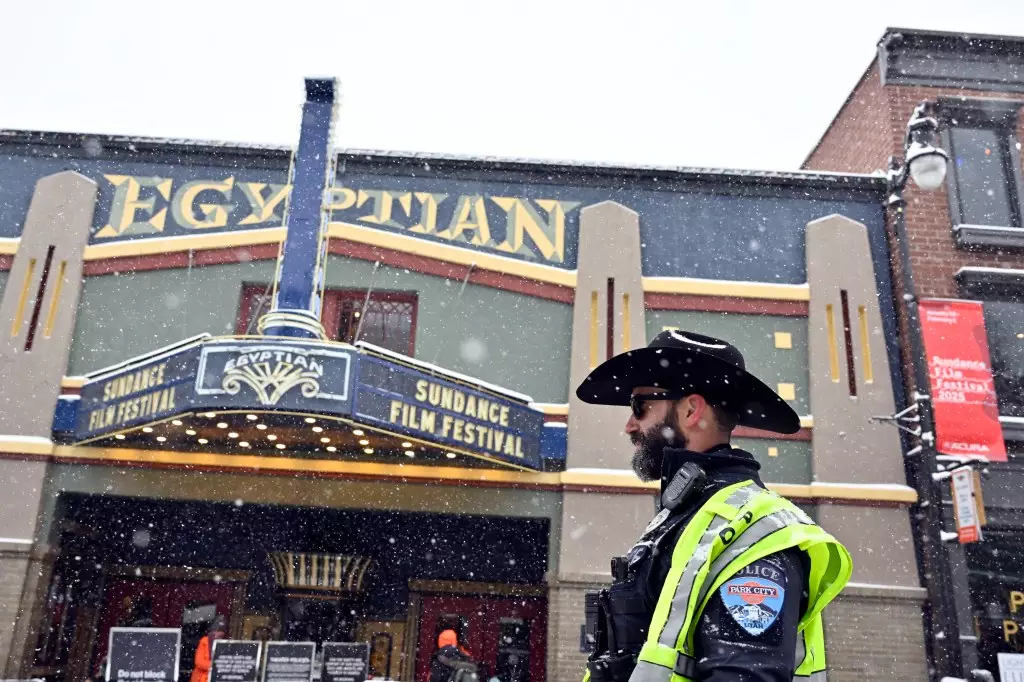As Utah’s legislative body moves to enact a contentious bill banning the Pride Flag from government properties, the future of the iconic Sundance Film Festival hangs precariously in the balance. With only two days left for Governor Spencer Cox to sign or veto this measure, it’s time to reflect on the broader implications of this political climate. The voices of local leaders are not merely discussing the future of a film festival; they are heralding a significant cultural shift that could either alienate incredible artistic endeavors from the state or ignite a battle for acceptance and diversity. This isn’t just about flags—it’s about values, identity, and the question of whether Utah can genuinely embrace its artistic community.
The Lens of Leadership: Voices from Park City
One of the most compelling narratives surrounding this issue comes from Park City’s Mayor Nann Worel. With deep ties to local business and community networks, Worel has invested years in reimagining a future for Sundance that could further integrate its ties to Utah. However, as she expressed in her latest state address, the emerging political rhetoric surrounding House Bill 77 casts a long shadow over those aspirations. Words from local officials, like Worel, resonate powerfully, illuminating the unsettling irony that the very actions taken by lawmakers could dismantle years of collaboration and growth.
The weight of the bill—which has been criticized for undermining the very spirit of inclusiveness that Sundance has celebrated for decades—fails to escape scrutiny. Worel’s sentiment is shared by many who feel that Utah is at a cultural precipice, caught between a desire for progress and a backward glance to conservative values. While there exists a robust call for the preservation of Sundance in Utah, it appears that political forces are pivoting toward a hardline approach that might alienate potential patrons and participants—the very fabric of what makes Sundance itself.
Economic Motivations: The Dollars Behind the Decision
Governor Cox has laid down substantial state funds as bait to retain Sundance, a multi-million dollar economic generator for the region. This financial commitment suggests a level of recognition regarding the festival’s impact, yet it sounds paradoxical alongside the accompanying bill that directly contradicts the festival’s ethos of diversity and acceptance. Critics argue that no amount of financial incentive can mask the damaging ideology underlying such legislation.
The emergence of competing offers from cities like Boulder, CO and Cincinnati, OH further complicates Utah’s stance. These cities, in stark contrast to Utah’s current political trajectory, present themselves as far more welcoming to participants of LGBTQ+ communities. This has created not just a competitive landscape but also a moral quandary for Utah: is financial security worth sacrificing a welcoming atmosphere that can embrace creative free expression?
The Reaction from the Community: A Call to Arms or Despair?
Community reactions to the proposed flag bill have been robust and vociferous. Opposition from organizations like the ACLU and Equality Utah highlight a glaring dissonance between the laws being passed and the values many Utahns hold dear. The message sent by legislators, as articulated by sources close to Sundance, is that such regulations are akin to a slap in the face to the festival’s celebrated ideals of inclusivity.
Importantly, the local arts community’s response underscores much more than disappointment. It calls into question the authenticity of local governance when faced with such a flagrant disregard for diversity—the very essence of art and storytelling celebrated at Sundance. Local leaders lament that while an uphill battle to preserve the festival remains, their acknowledgment of change signals a possible acceptance of inevitable loss.
The Consequences of Political Decisions
With the clock ticking toward the governor’s ultimate decision, the choices made within these last few days could share ramifications that extend well beyond the festival and its immediate supporters. These discussions evoke a profound discourse about what it means to foster inclusivity in a state traditionally viewed through a conservative lens.
A strong sentiment drilling down into the heart of this matter is the urgent need for communities to advocate not just for arts but also the values upon which those arts thrive. State lawmakers should take a step back to reconsider how actions rooted in intolerance can have the potential to perpetuate wider systemic issues. The legislative landscape in Utah must evolve alongside the state’s varied population and its evolving expectations.
Utah’s dilemma is not merely about holding onto a film festival rich in cultural heritage—it’s about positioning the state as a viable home for diverse voices. As the countdown ticks towards a decision—whether the Pride Flag remains or is symbolically torn from the landscape—the very future of festivals like Sundance rests in the balance.



Leave a Reply